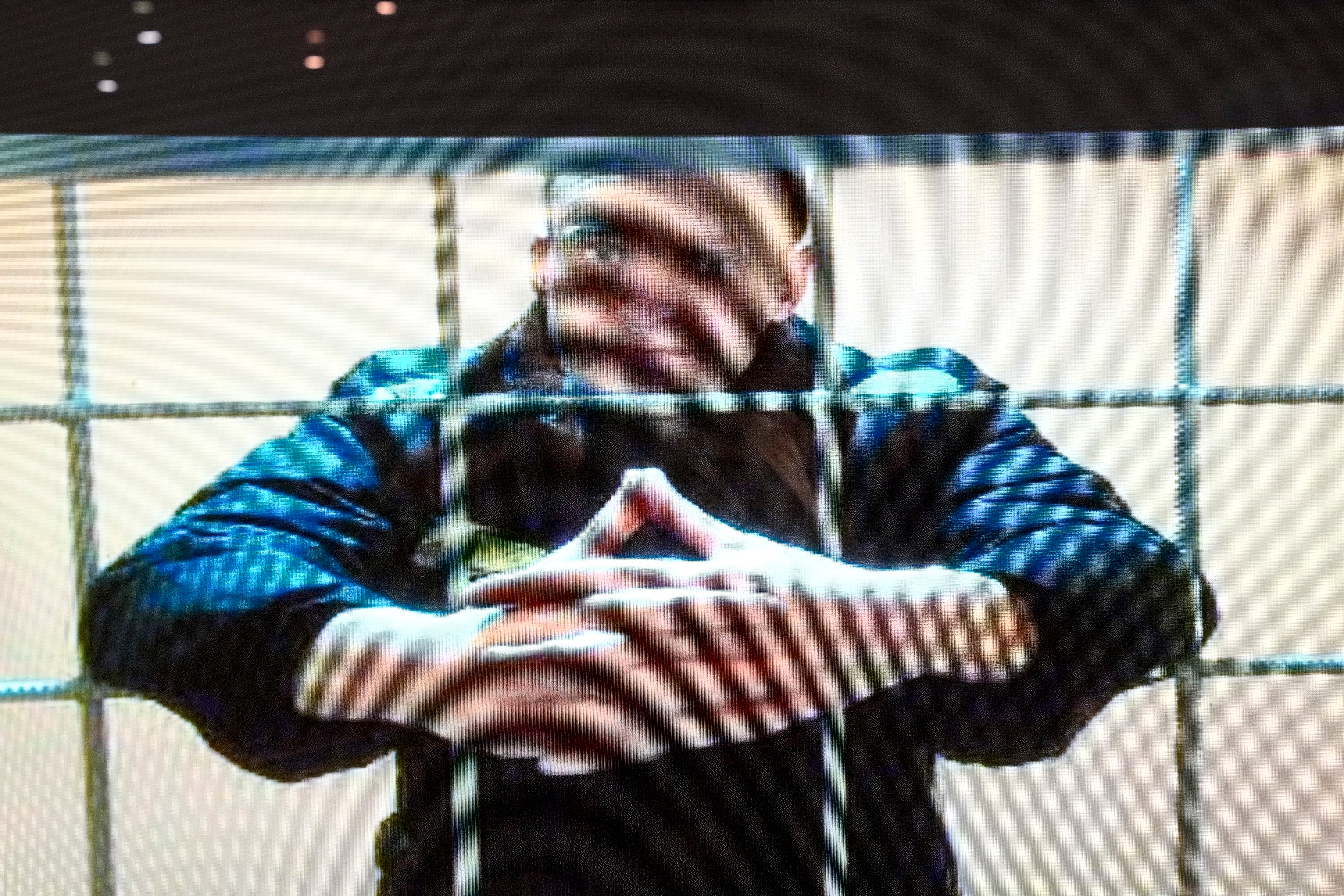Kremlin critic Navalny says he's in solitary confinement
Imprisoned Russian opposition leader Alexei Navalny says prison officials ordered him to serve at least three days in solitary confinement, citing a minor infraction, in retaliation for his activism behind bars

Your support helps us to tell the story
From reproductive rights to climate change to Big Tech, The Independent is on the ground when the story is developing. Whether it's investigating the financials of Elon Musk's pro-Trump PAC or producing our latest documentary, 'The A Word', which shines a light on the American women fighting for reproductive rights, we know how important it is to parse out the facts from the messaging.
At such a critical moment in US history, we need reporters on the ground. Your donation allows us to keep sending journalists to speak to both sides of the story.
The Independent is trusted by Americans across the entire political spectrum. And unlike many other quality news outlets, we choose not to lock Americans out of our reporting and analysis with paywalls. We believe quality journalism should be available to everyone, paid for by those who can afford it.
Your support makes all the difference.Imprisoned Russian opposition leader Alexei Navalny says prison officials ordered him to serve at least three days in solitary confinement, citing a minor infraction, in retaliation for his activism behind bars.
A post about the punishment appeared in Navalny's social media accounts on Monday. It wasn't immediately clear how the politician got the information out — the post says that those in solitary confinement are not allowed to have visitors, letters or parcels, the only possessions at Navalny's disposal are “a mug and a book,” and he gets to have a pen and some paper for just over an hour a day.
Navalny, President Vladimir Putin's fiercest foe, was arrested in January 2021 upon returning from Germany, where he had been recuperating from nerve-agent poisoning he blamed on the Kremlin. He received a 2½-year sentence for violating the conditions of his parole while outside Russia.
In March, Navalny was sentenced to nine years in prison on charges of fraud and contempt of court, allegations he rejected as a politically motivated attempt by Russian authorities to keep him behind bars for as long as possible.
During his time behind bars, his social media accounts have been regularly updated with posts about life in prison. Just last week, Navalny announced setting up a labor union for convicts, of which he said he was the only member at the time. Navalny said the union has successfully argued for replacing backless stools with chairs in the prison's sewing shop where he works.
According to the post published on Monday, the union activity was the real reason prison officials sent him to solitary confinement: “The Kremlin wants to see its GULAG consisting of voiceless slaves. And here I am, instead of begging for pardon, uniting some people and demanding that some laws be observed.”
The post said Navalny was summoned by prison officials and told that video surveillance showed he regularly unbuttoned his prison garb while in the work area. “This certainly characterizes me as a hopeless villain. So, a decision has been made to send me to punitive solitary confinement” for three days, the post read.
If Navalny “doesn't change (his) attitude,” his stay there would be extended, prison officials told him, according to the post.
The post described solitary as “the most severe punishment in the legal prison hierarchy" — a small concrete cell, in which “it is very hot and there is almost no air.” There is a metal bed attached to a wall, and a mattress and a pillow are only brought at 9 p.m. and taken away at 5 a.m.
“Visitation is now allowed, letters are not allowed, parcels are not allowed. It is the only place in prison where even smoking is not allowed,” the post read.